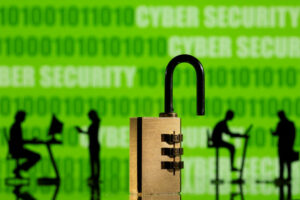THE PHILIPPINE government must develop a national artificial intelligence (AI)-powered identity security strategy and support the adoption of biometrics and fraud detection technologies to protect Filipinos from cybersecurity risks, according to technology company HID Global.
“There is a key opportunity to strengthen the country’s security and identity infrastructure… The government can consider creating a national AI-powered security strategy to accelerate the adoption of biometrics, mobile identity verification and fraud detection across sectors,” Prabhuraj Patil, HID Global senior director for Physical Access Control Solutions in the Association of Southeast Asian Nations (ASEAN) and India Subcontinent, said in an e-mail.
“By standardizing AI-driven identity solutions in e-governance, financial transactions, and critical infrastructure, the Philippines can enhance security while improving service efficiency.”
AI can enhance existing security solutions through real-time anomaly detection, automate routine tasks, and facilitate predictive analytics for efficient and proactive threat management, Mr. Patil said.
About 35% of security leaders worldwide now use biometric technologies while 13% plan to, according to HID’s 2025 State of Security and Identity Report.
According to HID’s study, which surveyed 1,800 respondents worldwide including the Asia Pacific, the adoption of AI agents in companies’ security operations has been rapid amid their improved efficiency and speed in security processes (50%) and ability to provide enhanced real-time data analysis (47%).
“Experts are moving away from traditional access methods, adopting mobile solutions and integrating biometric technologies like fingerprint and facial recognition. This transition enhances security and user convenience,” Mr. Patil said.
Cloud-based identity management, mobile credentials, and AI-driven security analytics can also help lower energy consumption, reduce plastic waste, and optimize security efficiency, he added.
The Philippines’ vulnerability to disasters has also been driving the adoption of sustainable security technologies such as solar-powered surveillance systems and disaster-proof cloud identity verification, the official said.
“These solutions ensure business continuity and environmental sustainability while reducing reliance on physical security infrastructure.”
Mr. Patil also cited the need for a unified security framework to ensure interoperability between government agencies, banks, healthcare, and telecom providers and improve identity verification processes and cross-agency digital transactions.
The government must also strengthen public-private partnerships to leverage digital identity solutions, cyber resilience programs, and research and development grants, he added. — Beatriz Marie D. Cruz

